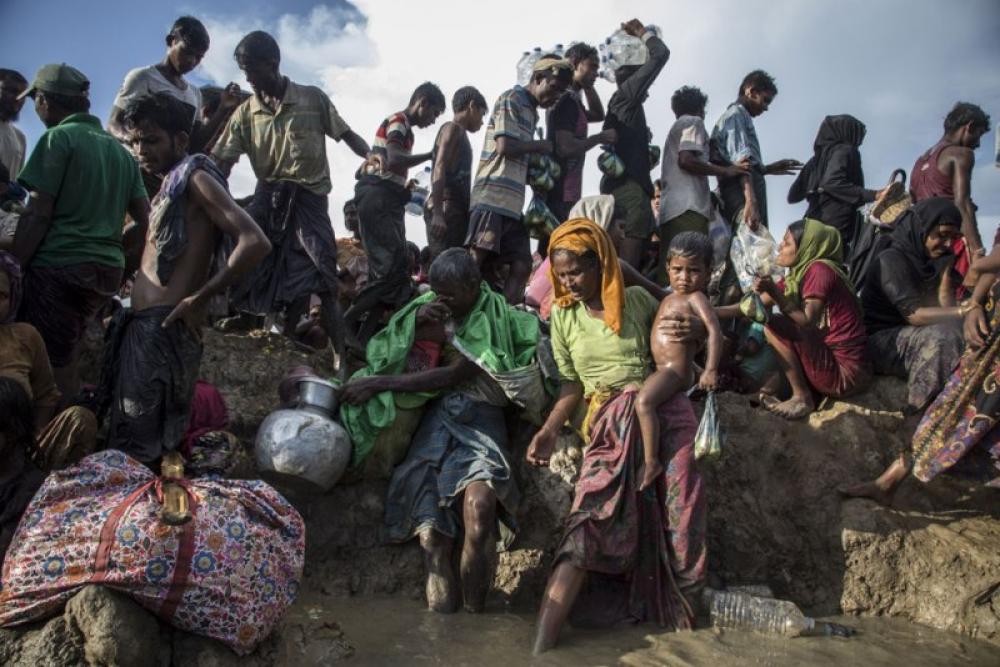Just Earth News | @justearthnews | 14 Dec 2017

Nawpyidaw, Dec 14 (JEN): Weighing in on the Rohingya crisis, global humanitarian NGO Medecins Sans Frontieres (MSF) released a report on Tuesday, claiming that a survey by them showed at least 9000 Rohingya people were killed between April and September this year.
According to the MSF data, 71.7 percent of the deaths, a little over 6700 people, occurred during the conflict in Myanmar's Rakhine state.
The survey was conducted in Bangladesh's Cox's Bazar camp, where a sea of refugees have been granted shelter by the Bangladesh government.
The data further revealed that 730 children below the age of five were among the 6700 people who died during the conflict.
Speaking about the report, Dr. Sidney Wong, MSF Medical Director said, “We met and spoke with survivors of violence in Myanmar, who are now sheltering in overcrowded and unsanitary camps in Bangladesh. What we uncovered was staggering, both in terms of the numbers of people who reported a family member died as a result of violence, and the horrific ways in which they said they were killed or severely injured. The peak in deaths coincides with the launch of the latest 'clearance operations' by Myanmar security forces in the last week of August.”
MSF quizzed an approximate 608,108 people during the course of the survey.
The NGO said that around 503,698 had fled Myanmar after 25 August, out of which 100,464 were children below the age of 5 years.
"The overall mortality rate between 25 August and 24 September of people in households surveyed was 8.0/10,000 persons per day. This is equivalent to the death of 2.26% (between 1.87% and 2.73%) of the sampled population. If this proportion is applied to the total population that had arrived since 25 August in the camps which were covered by the surveys, it would suggest that between 9,425 and 13,759 Rohingya died during the initial 31 days following the start of the violence, including at least 1,000 children below the age of 5 years," the report read.
However, according to Dr Wong, the number of deaths may have been under reported as MSF did not survey all the refugee settlements in Bangladesh.
“The numbers of deaths are likely to be an underestimation as we have not surveyed all refugee settlements in Bangladesh and because the surveys don’t account for the families who never made it out of Myanmar,” Dr. Wong said. “We heard reports of entire families who perished after they were locked inside their homes, while they were set alight.”
"With very few independent aid groups able to access Maungdaw district in Rakhine, we fear for the fate of Rohingya people who are still there," Dr Wong added.
Image: UNICEF/LeMoyne